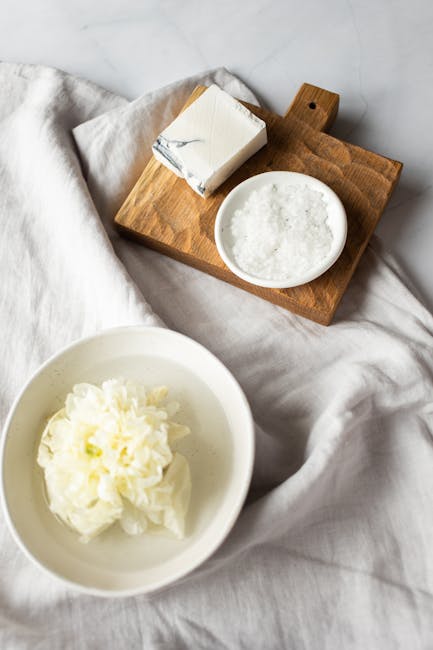Prioritizing self-care in your daily routine is not just a luxury, but a necessity for maintaining your overall well-being. This blog post will guide you on how to make self-care a priority, even amidst a busy schedule. Keep reading to discover practical strategies, tips, and insights that will help you create a self-care routine that fits seamlessly into your daily life.
Key Takeaways
- Understanding the importance of self-care
- Setting boundaries for better self-care
- Creating a consistent self-care routine
- Practical self-care strategies
- Balancing work and self-care
- The mental aspect of self-care
- Long-term benefits of prioritizing self-care
Understanding the Importance of Self-Care
Benefits of Prioritizing Self-Care
Improves mental health
Self-care activities like meditation, yoga, and journaling can significantly improve your mental health by reducing stress and anxiety levels.
Enhances physical health
Regular exercise, a balanced diet, and adequate sleep are all part of self-care that contribute to better physical health.
Increases productivity
When you take care of your physical and mental health, you’re more likely to be productive and efficient in your daily tasks.
Common Barriers to Self-Care
Perfectionism
Striving for perfection can often lead to burnout and stress, hindering your self-care routine.
Overcommitment
Overcommitting yourself can leave little to no time for self-care. It’s essential to learn to say “no” and prioritize your well-being.
Lack of boundaries
Without clear boundaries, you may find yourself constantly catering to others’ needs at the expense of your own.

Setting Boundaries for Better Self-Care
The Role of Saying “No”
Learning to say “no” to tasks or commitments that drain your energy is crucial for prioritizing self-care.
Protecting Your Time and Energy
Identifying energy-draining activities
Recognize the activities that drain your energy and try to limit or eliminate them from your routine.
Allocating time for rest and activities that rejuvenate
Ensure you schedule time for rest and activities that rejuvenate you, like reading a book, taking a walk, or practicing yoga.

Creating a Self-Care Routine
Importance of Consistency
Consistency is key in maintaining a self-care routine. Make self-care a daily habit, not just a one-off activity.
Systems that Support Self-Care
Scheduling self-care activities
Plan your self-care activities and include them in your daily schedule. This ensures that you prioritize self-care each day.
Automating or delegating tasks to free up self-care time
Automate or delegate tasks where possible to free up time for self-care. This could include meal prepping, hiring a cleaner, or using a laundry service.

Practical Self-Care Strategies
Focus on What You Can Control
Identifying controllable aspects of your life
Focus on the aspects of your life that you can control, like your reactions, your attitude, and your actions.
Reducing stress through control and management
Manage your stress levels by focusing on what you can control and letting go of what you can’t.
Embracing “Good Enough” Over Perfectionism
Recognizing the pitfalls of perfectionism
Perfectionism can lead to stress, burnout, and dissatisfaction. Recognize these pitfalls and strive for progress, not perfection.
Focusing on progress rather than perfection
Celebrate small wins and progress. Remember, self-care is a journey, not a destination.
Self-Care Ideas You Can Start Using Today
Mindfulness and meditation
Practicing mindfulness and meditation can help reduce stress and improve mental clarity.
Physical activity
Regular physical activity is a great way to take care of your physical health and reduce stress.
Hobbies and interests
Engaging in hobbies and interests you love can help you relax and recharge.

Balancing Work and Self-Care
Strategies for Managing Professional Responsibilities
Setting clear work-life boundaries
Set clear boundaries between your work and personal life. This could include setting specific work hours and taking regular breaks.
Prioritizing tasks and delegating when possible
Prioritize your tasks based on their importance and urgency. Delegate tasks when possible to reduce your workload.
Incorporating Self-Care into the Workday
Taking regular breaks
Take regular breaks during your workday to rest and recharge. This could include a short walk, a mindfulness session, or a healthy snack.
Creating a supportive work environment
Create a work environment that supports your well-being. This could include a comfortable workspace, a positive atmosphere, and supportive colleagues.

The Mental Aspect of Self-Care
The Importance of Self-Compassion
Being kind to yourself
Practice self-compassion by being kind to yourself, especially during challenging times.
Avoiding negative self-talk
Avoid negative self-talk and replace it with positive affirmations and self-encouragement.
Mindfulness and Awareness
Staying present in the moment
Practice mindfulness by staying present in the moment and focusing on your current activity.
Recognizing and managing stressors
Recognize your stressors and develop strategies to manage them effectively.
Why You Should Prioritize Self-Care
Long-Term Benefits of Self-Care
Sustained well-being
Regular self-care can lead to sustained well-being, including improved mental and physical health.
Better relationships
When you take care of yourself, you’re better able to take care of others, leading to healthier relationships.
Career longevity
Taking care of your well-being can lead to increased productivity and career longevity.
Overcoming Guilt Associated with Self-Care
Recognizing self-care as a necessity, not a luxury
Self-care is not a luxury, but a necessity. Recognize this and make self-care a priority in your life.
Understanding the positive impact of self-care on others
When you take care of yourself, you’re better able to care for others. Your self-care can have a positive impact on those around you.

In conclusion, prioritizing self-care in your daily routine is essential for your overall well-being. By understanding the importance of self-care, setting boundaries, creating a consistent self-care routine, and implementing practical self-care strategies, you can balance work and self-care effectively. Remember, self-care is not a luxury, but a necessity. So, make self-care a priority and enjoy the long-term benefits it brings.
For more insights on how to prioritize self-care in a busy schedule, check out this guide. If you’re looking for ways to establish a consistent self-care routine, this article might be helpful. And for more ideas on how to practice self-care in a busy lifestyle, don’t miss this post.
Remember, self-care is not just about taking care of your physical health, but also your mental and emotional health. So, take time for yourself, be kind to yourself, and prioritize your well-being. After all, you can’t pour from an empty cup. (source: Nivati)
Nurturing Yourself Daily: Your Self-Care FAQ Guide
What is self-care and why is it important?
Self-care refers to the practices and activities we engage in on a regular basis to reduce stress and maintain and enhance our short- and long-term health and well-being. It’s crucial because it helps to improve our mental health, reduce stress, prevent burnout, and enhance our overall quality of life. By prioritizing self-care, we ensure that we’re physically, mentally, and emotionally balanced.
How can I start incorporating self-care into my busy schedule?
Start small by identifying pockets of time in your day that can be dedicated to self-care activities. This could be as simple as a five-minute meditation in the morning, a short walk during your lunch break, or reading a book before bed. The key is to find activities that you enjoy and that fit into your lifestyle, making them more sustainable.
What are some examples of self-care activities?
Self-care activities can vary widely depending on personal preference, but some common examples include exercise, meditation, spending time in nature, practicing gratitude, enjoying a hobby, taking a relaxing bath, and ensuring you get enough sleep. The best activities are those that make you feel refreshed and rejuvenated.
How can I stay motivated to maintain a self-care routine?
Setting realistic goals, tracking your progress, and celebrating small victories can help keep you motivated. It’s also important to remember why you started and the benefits you’re experiencing. If you find your motivation waning, try mixing up your routine with new activities to keep things interesting.
Can self-care help with anxiety and depression?
Yes, self-care can be a valuable tool in managing symptoms of anxiety and depression. Activities like exercise, meditation, and spending time in nature have been shown to reduce stress and improve mood. However, it’s important to note that while self-care can help manage symptoms, it’s not a substitute for professional treatment when needed.
How do I know if I’m practicing enough self-care?
The right amount of self-care varies from person to person. A good indicator that you’re practicing enough self-care is if you feel well-balanced and able to handle stress more effectively. If you’re feeling overwhelmed or burnt out, it may be a sign that you need to incorporate more self-care into your routine.
Is it selfish to prioritize self-care?
No, prioritizing self-care is not selfish; it’s necessary for maintaining your health and well-being. By taking care of yourself, you’re better equipped to support and care for others. Think of it as the advice given on airplanes: you need to put on your own oxygen mask before helping others.
How can I make self-care a habit?
Making self-care a habit involves consistency and commitment. Start by scheduling self-care activities into your daily routine and treat them as non-negotiable appointments. Over time, these activities will become a natural part of your day. Remember, the goal is to make self-care a regular practice, not something you do only when you’re already stressed or overwhelmed.




il faut trouver le bon hypnothérapeute et surtout pouvoir lâcher prise….sinon ça ne fonctionne pas.
Yes, of course, you have right. Thank you for the comment.
Take care.
Miroslaw